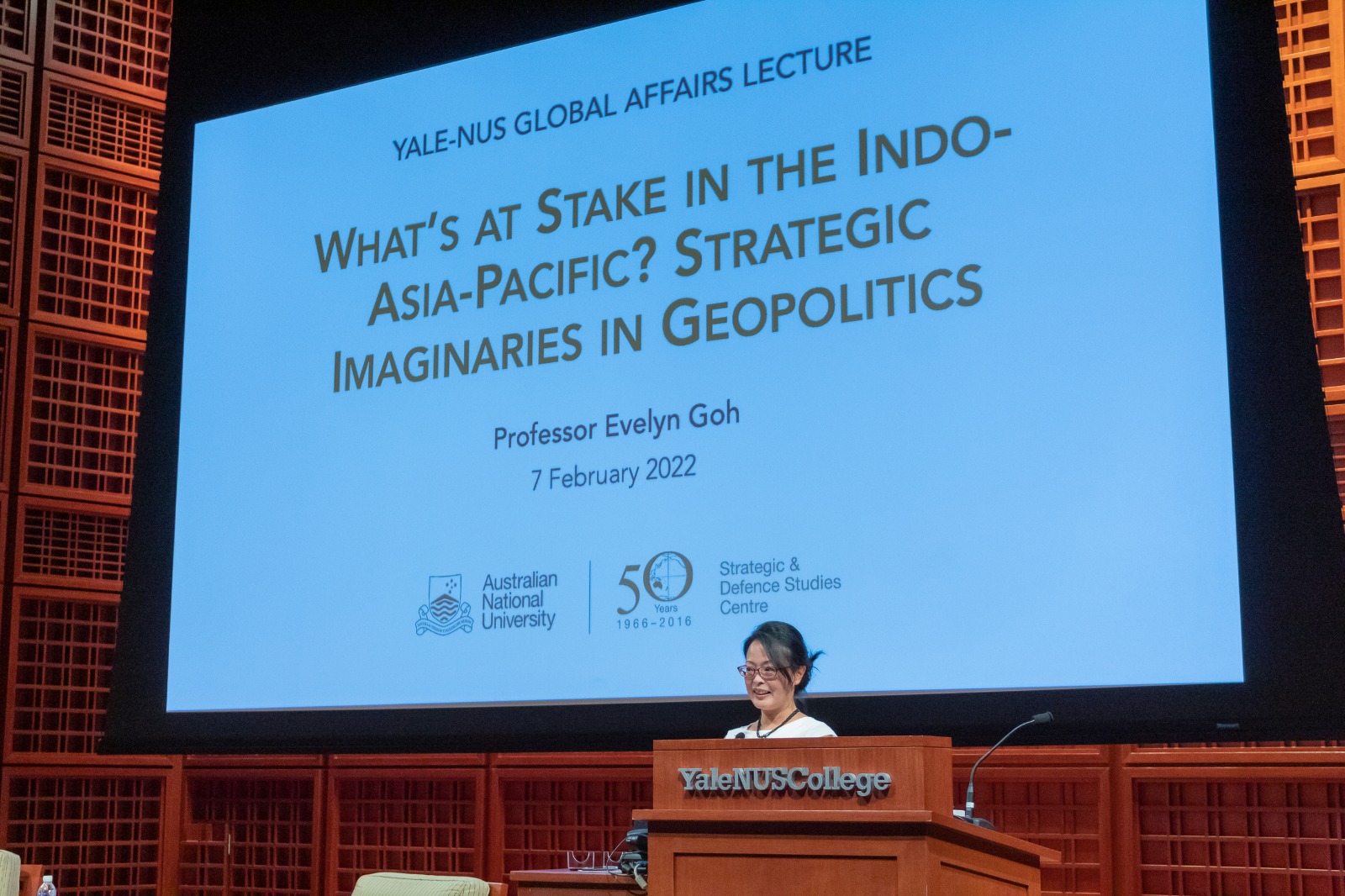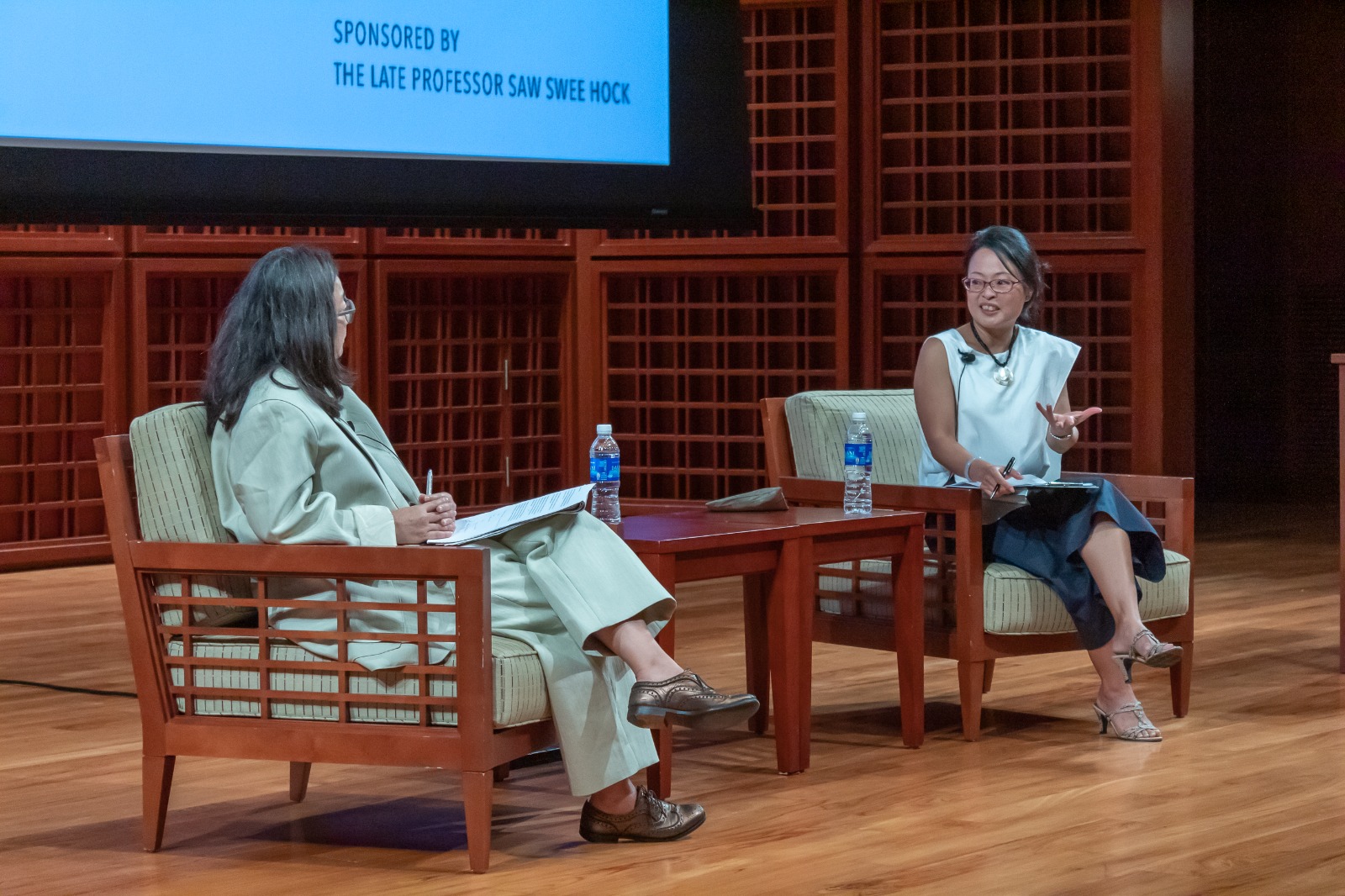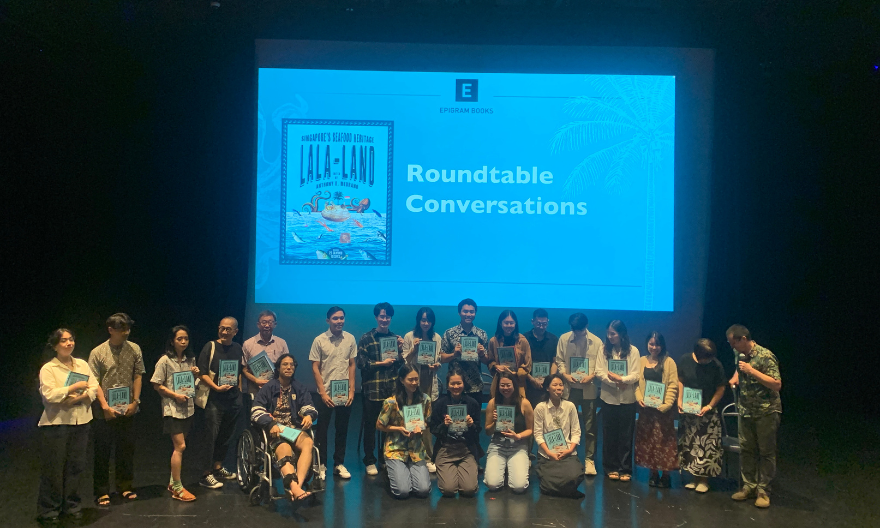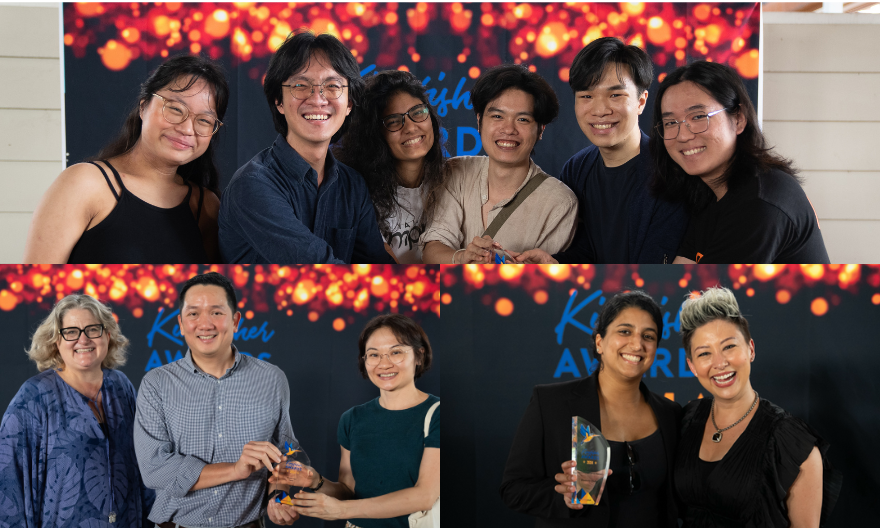Yale-NUS Global Affairs Lecture discusses geopolitical competition in Asia
Shedden Professor of Strategic Policy Studies at The Australian National University Evelyn Goh analyses geopolitical struggles and competition in Asia
On 7 February 2022, Yale-NUS College hosted the annual Yale-NUS Global Affairs Lecture, a series of public lectures sponsored by the late Professor Saw Swee Hock which aims to bring together scholars of global stature to discuss key challenges and issues of today.
This year’s lecture was delivered by Shedden Professor of Strategic Policy Studies at The Australian National University Evelyn Goh. Prof Goh’s research focuses on Asian security as well as international relations theory and practice, with her most recent studies centring on the interactions between Chinese investment and influence, and politics in Southeast Asia.
 Prof Goh engaged the audience in an insightful conversation about geopolitical struggles in Asia.
Prof Goh engaged the audience in an insightful conversation about geopolitical struggles in Asia.
Prof Goh’s argument focused on how military and economic power not only affects geopolitics, but is also imperative in impacting what she terms as “strategic imaginaries”. Prof Goh explained that such “imaginaries” can be described as a strategic decision to “prioritise connectivity and identification with some parts of the world [above others]”.
An example of such a strategic imaginary would be the concept of the “Asia-Pacific”. Spearheaded by the United States (US), the Asia-Pacific strategy was, as Prof Goh described, a “sheer act of power projection” by the US – an ambitious and concerted effort to “forge connectivity across the Pacific Ocean” into Asia despite sizable geographical distance. From spawned “concrete connectivity of trade” platforms such as the Asia Pacific Economic Corporation (APEC) grouping, the strategic imagination is translated into reality by formally bringing together the markets of Asia and America.
According to Prof Goh, two other strategic imaginaries have also arisen in contemporary times to contest the dominant Asia-Pacific imaginary. First, the “Greater Asia” imaginary centres China’s post- emergence as a strategic and economic actor, which consequently reconnected the three subregions of Northeast, Southeast and South Central Asia. Through the Belt and Road Initiative, China is actively intensifying her influence and power across Asia, consequently hoping to assert the “Greater Asia” imaginary.
The other competing vision would be the “Indo-Pacific” imaginary, which seeks to bring together countries from coast to coast of the Pacific and Indian Oceans with four countries – India, US, Australia and Japan – forming the centre core of the initiative. In contrast to the “Greater Asia” imaginary, this strategic imaginary seeks to reinforce US’ primacy in the region, and as of yet remains more of an evolving vision which lacks tangible concretisation.
To conclude her lecture, Prof Goh posed a question to the audience for discussion: as we live through these competing imaginaries in Asia today, do we perceive them behaving in a “zero-sum” way, or could these imaginaries potentially be complementary to each other?
This sparked a lively discussion in the question and answer segment following the lecture, which was moderated by Professor of Humanities (History) Naoko Shimazu.
 Prof Shimazu (left) and Prof Goh (right) during the question and answer segment of the lecture.
Prof Shimazu (left) and Prof Goh (right) during the question and answer segment of the lecture.
During the discussion, Professor in Economics at the National University of Singapore (NUS) Lee Kuan Yew School of Public Policy Danny Quah, enquired why Latin America and Africa were consistently left out of the three strategic imaginaries she had described. Prof Goh explained that despite Latin America and Africa’s objective geographical significance, they have not been “made strategic” because they seem to lack the confluence of geography with political and cultural power. She added that these two regions have not been perceived to have cultural and political models that other nations seek to emulate.
Another query focused on whether smaller countries or regional entities, such as Singapore or the Association of Southeast Asian Nations (ASEAN), have agency in contributing to or driving strategic imaginaries and the policy challenges that these countries might face in terms of navigating the rising competing imaginaries. Prof Goh noted that ASEAN has selectively engaged with the Indo-Pacific imaginary by releasing an outlook document, but has otherwise defaulted to the traditional language of “Asia-Pacific”. She elaborated that ASEAN’s response has had some degree of impact in shaping Japan’s evolving responses to its Indo-Pacific campaign, concluding that states have some degree of agency.
Wrapping up the session, Prof Goh reflected on the strategic position of India as a rising power which is finding its way to project itself beyond the “Indo-Pacific” subcontinent imaginary. India is in the midst of developing its political responses and Prof Goh noted that it will be interesting to watch its engagement with the region amidst dynamic strategic competition.
Watch the full lecture here.





